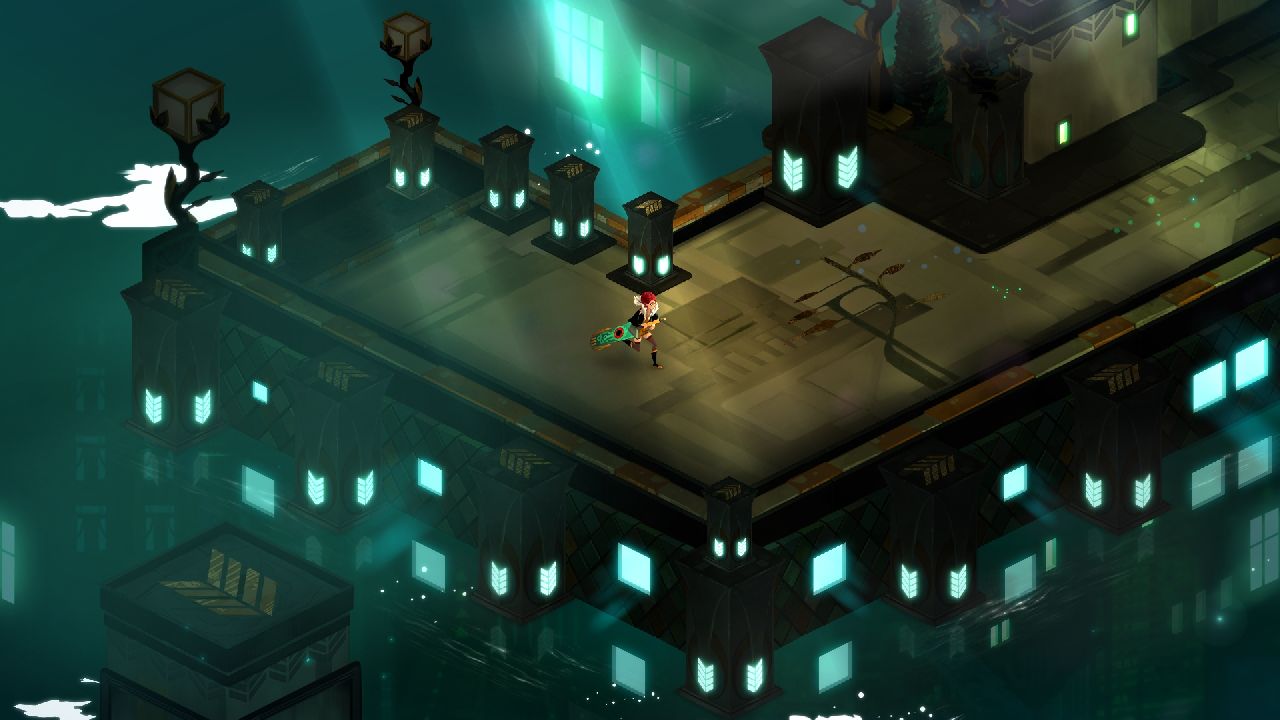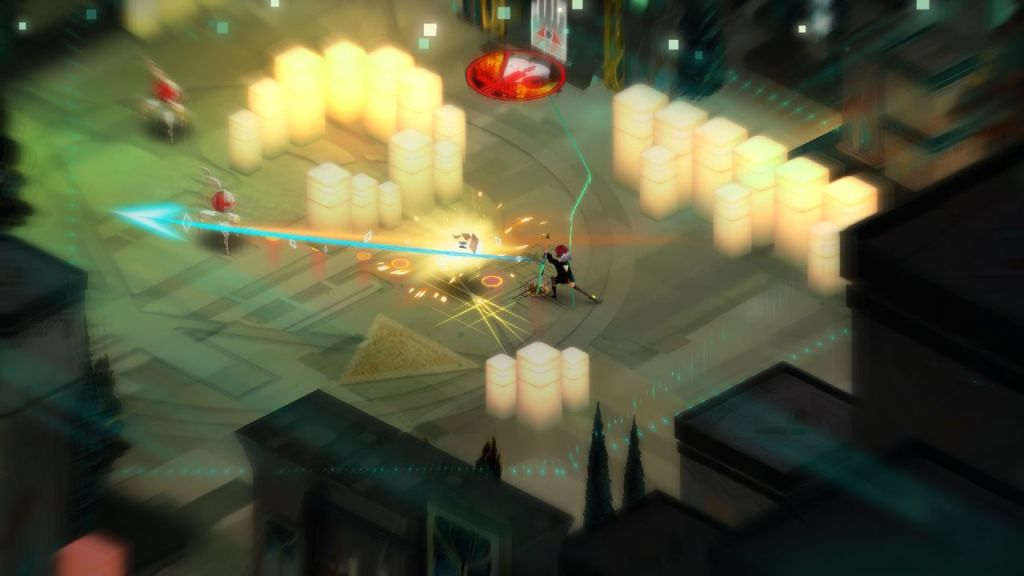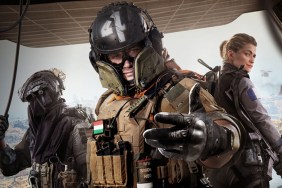Beauty and danger at the edge of the digital world.
A young woman stands trembling, wrapping her arms around herself to stave off the chill in the air that her stately yellow gown cannot. “Come closer,” a voice entreats. It has a strong presence which rings with a fatherly compassion one might expect from an exceptional sort of human, though it eminates from a sword. A gentle green glow accompanies its every word, the same sort of incandescent light that spills into the glyph-lined street through a nearby window, like sunlight through the bars of a jail cell.
I inch her forward, but caution stays my hand for a moment. I know what's supposed to happen—I'm supposed to walk forward and pick up the sword so the game can go on. But even though I'm only a minute into my demo of Transistor, I already feel connected to my avatar, Red. And the world she inhabits, Cloud Bank, already feels dangerous.
I'd seen the trailers. I knew how distinctive, how stunning Transistor's hand-crafted art and animation looked going into my E3 demo, but I don't think I was ready for how effective its storycraft was. Even Bastion, which I adore, didn't prepare me for how skillfully constructed all of Transistor's little moments were. The minutiae of what makes it work is tough to nail down in basic terms, but if I had to try, I'd say it's in the way it organically uses every moment, whether it's a scripted event or a screen transition, as an opportunity to build character and atmosphere.
But if you're worried about the narrative bogging down the actual gameplay, don't be. Most of the story is conveyed as you play, and as well done as it is, you'll be thankful for that because you won't want anything to come between you and the combat. Despite sharing a camera perspective and a disembodied narrative voice as Bastion did, it's in battle where Transistor makes its biggest departure from its prequel.

You could loosely refer to it as an action RPG, but you can't hack, slash, or button mash your way about here. Different skills are mapped to the face buttons, but they aren't of the spammable variety. They come out more deliberately, and none of them can be considered a “primary” attack in the traditional sense. For instance, the skill “crash” is a short range attack with average speed and damage, where “breach” is a slow-starting, long-range projectile that pierces through enemies and cover points alike. Each attack, no matter how basic, looks fantastic—wreathed in crackling energies of every kind and animated silkenly smooth.
But for as swanky as it all looks, it's the “turn” system Transistor employs that elevates its combat into loftier territory. Pulling the R2 button stops time and allows you to queue up a series of movements and actions to be performed in rapid succession after a second press. Think of it like the VATS system from Fallout 3 but with a lot more options at your disposal. For instance, upon encountering a small group of enemies, you could run to the safety of cover and then engage turn mode. With time frozen, you could then move out of cover, fire off the “spark” skill to pepper them with AoE damage, then use “jaunt” to teleport to their flank, only to finish with a breach to pierce through all three of them at once. The more actions you queue, though, the more your turn energy is drained, and you won't be able to stop time again or use any offensive skills until the meter is fully recharged.

Aiding in both the atmosphere and the tactical depth, enemies sport widely varied looks and behaviors. In just 15 minutes I faced off against at least four different enemy types, and each introduced interesting variables to the equation. The tripedal “Creeps” resurrect if the cell they drop after death isn't retrieved in time, while the cunning “Young Lady” creates a shadow copy of itself when predictably attacked and showers the field with attack drones upon death. Each of these elements fits together well, making combat just as stimulating mentally as it is visually.
I'd need to write many more words to express all that made my brief time with Transistor feel special. I could gush on about the Darren Korb-composed soundtrack or begin speculating on how the protagonist, Red, lost her voice, or on the mysterious history of her titular blade, but my words would likely do it all—including you—an injustice. So instead, I'll just tell you to keep a watchful eye out for it when it hits in early 2014 for PS4 and PC.










